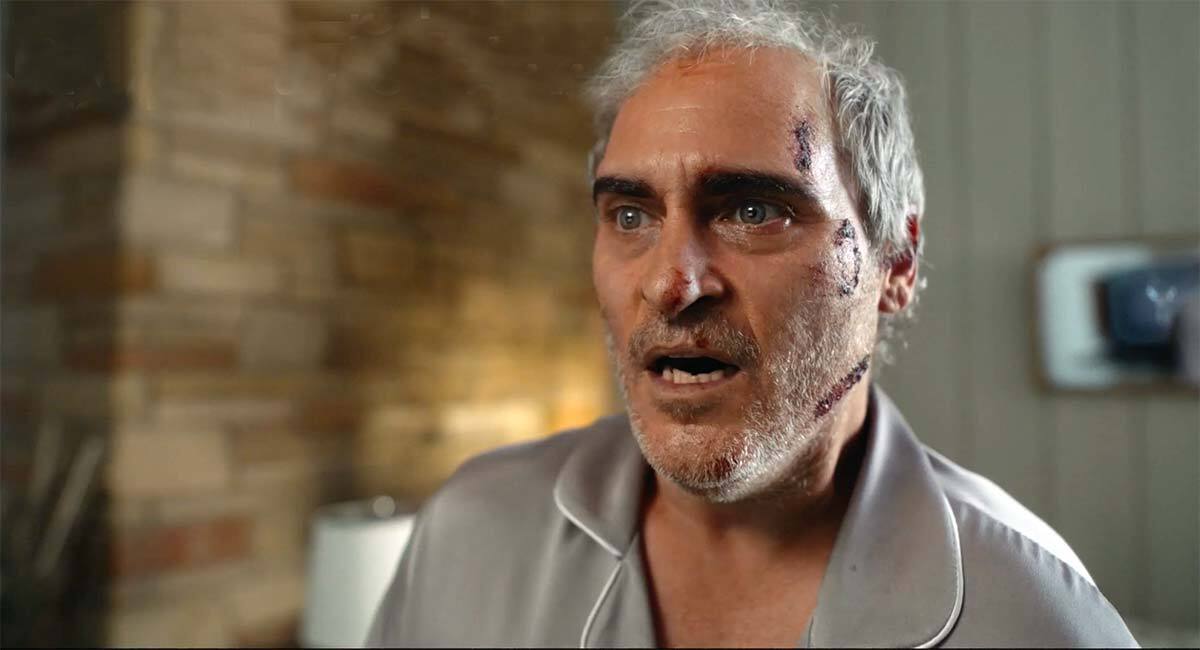Rating: 4.5/5 stars
Ari Aster, writer and director of the horror films “Hereditary” and “Midsommar,” takes a break from the horror genre to weave a more anxiety-inducing story in his latest surrealist film, “Beau is Afraid,” which was released on April 21.
The movie centers around the guilt-ridden, blubbering protagonist Beau Wasserman (Joaquin Phoenix) as he struggles through unbelievable, nightmarish scenarios on his way to his abusive mother’s funeral. Beau narrowly avoids death at every turn and witnesses countless description-defying atrocities while grappling with his conflicting emotions and memories of his childhood. At its core, the film is about guilt and the impact of abuse.
From the opening scene, a childbirth filmed from the disturbing point of view of the baby being born, it’s clear that sound plays an instrumental role in telling the story. The beginning of the movie takes place in a city riddled with senseless violence, and there is a ceaseless, muffled shouting offscreen that places the viewer in Beau’s position to feel his anxiety and see his errant world perceptions. The effect is chilling and ominous, creating a constant dreadful anticipation that is made all the worse by the horrific scenarios that take place. Beau is afraid, and so are you.
The constant bombardment of noise makes the silences all the more impactful. For instance, when Beau is on the phone with his mother, the periods of extended silence are even more excruciating to witness than some of the bloody, gory scenes in the movie.
Phoenix delivers a phenomenal performance as the mumbling, hand-wringing, wretched Beau. His face seems etched in a permanent sorrowful state with eyebrows furrowed and mouth barely opening to speak. His tone of voice is soft and unsure, accentuating the character’s pathetic and insecure nature that simultaneously shows the harrowing effects of his mother’s abuse and makes him difficult to root for. Patti LuPone as Mona Wasserman, Beau’s mother, gives a stunning performance. Back straight, lips pursed, and voice venomous, LuPone turns into the epitome of an abusive mother. Her monologues are entrancing, making the viewer both sympathize with and despise her.
The movie’s writing finds the right balance between being absurd and surrealist without venturing into artsy pretentiousness. The plot is a comprehensible, if somewhat convoluted and long-winded, allegory for grappling with guilt and seeking truth. Each time I thought the tables would turn in Beau’s favor, the plot only spiraled further downward, becoming more absurd and horrifying. There are moments of reprieve and wry humor, but they are mostly overshadowed by the darkness that permeates the film.
In its essence, beneath all of its outlandishness, “Beau is Afraid” is a deeply human film. It is about a man stuck in boyhood, grappling with loneliness, and struggling to forgive himself for guilt unfairly imposed upon him. I would highly recommend it to anyone seeking a thought-provoking, imaginative movie.

